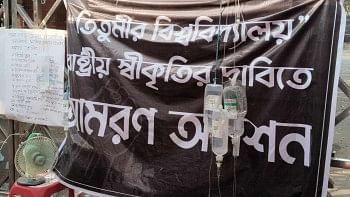Transitioning back to academic life after the July Revolution

The resignation of Sheikh Hasina on August 5, following widespread protests, marks a pivotal moment in Bangladesh's history. The movement, largely driven by students, led to the ousting of the former regime, but not without heavy sacrifices. Over a thousand students lost their lives and many more were wounded. At the time of writing this article, many students had still not recovered. In the chaotic aftermath, the nation witnessed widespread vandalism and disorder, with minority communities being particularly vulnerable. While all the academic institutions were closed during this period of unrest, most have welcomed their students back. However, this return to academic life must be approached with care, compassion, and a deep understanding of the trauma that students have endured.
"I think we need some time to move on from everything, we have been through a lot, mentally, and physically," said Anushila Siddique, an undergraduate student from North South University who actively participated in the movement.
In a newly rejuvenated country, with the winds of change blowing through every corner, it is understandable that universities, colleges, and schools want to resume operations with newfound energy. In addition, the weeks lost from the academic year have created a sense of urgency to make up for lost time. However, it is crucial to recognise that rushing into a full-scale academic schedule, complete with quizzes, term exams, and heavy workload, may not be the best approach. While the drive to move forward is commendable, the well-being of students must remain a priority. The academic pressure of a typical school year, if reintroduced too quickly, could overwhelm students who are still grappling with the emotional and psychological aftermath of recent events.
A more measured approach will allow students to re-engage with their coursework without feeling burdened by expectations. Recognising this is essential for educators and administrators. If the well-being of the students is not accounted for, it could negatively impact their academic performance, resulting in lower grades than expected.
Simin Sorowar, an undergraduate student at BRAC University, shared her concerns about the state of her peers, "Many of my classmates are still physically injured, and countless others are mentally disturbed. The violence that happened on our university premises has had an effect on all of us. Even those who couldn't join the protests in person but were closely involved online are still struggling. It's clear that most of us are not mentally equipped to dive back into our studies just yet, let alone sit for exams."
Nubah Nanziba, a student at Dhaka University, expressed her concerns about returning to classes, "I'm not sure how much our safety can be guaranteed, as the political situation in the country is still quite volatile. Personally, I'll be extra cautious because there's always the fear that something could go wrong. While it's reassuring that we can now speak openly about our political views, there are troubling rumours about certain people enforcing rules, and the thought of potentially facing that when I return to campus is really frightening."
Farhan*, who is currently an undergraduate student at a private university, shared, "Many of us are excited to go back to university with a renewed sense of freedom and happiness, but it cannot be forgotten that a lot of our peers have been injured, educational institutions should take into account students' mental and physical health before starting academic activities in full swing.''
As academic institutions reopen, there is a pressing need for a shift in mindset. Students must be given time to process what they have experienced and heal before they can be expected to fully re-engage with their studies. Educators and administrators have to play a crucial role in this process. Understanding and empathy must be at the forefront of all their decisions, rather than rigid adherence to academic schedules. Additionally, mental health resources should be made readily accessible, and seeking help should be encouraged.
"It's crucial that universities step up and provide the support we need during this time. Many of us are still dealing with physical injuries and mental trauma. With the right care and understanding, we will be better prepared to succeed academically and achieve better results," added Simin.
Labib Rahman*, an undergraduate student at Rajshahi University, shared his hopes for reopening academic institutions, "I want the return to be smooth and thoughtful, not rushed. It's important that universities focus on creating a safe and supportive environment, where students can take their time to adjust. There also needs to be a serious effort to put an end to aggressive student politics on campus, so we can finally feel safe and focus on our education without the constant fear of violence or unrest."
The process of rebuilding Bangladesh, including its academic institutions, will take time. Rushing this process could do more harm than good. Recovering from the recent turmoil is not a journey that students should navigate alone. A supportive academic community, built on mutual care and understanding, is essential for fostering healing and resilience.
*Names have been changed upon request.


 For all latest news, follow The Daily Star's Google News channel.
For all latest news, follow The Daily Star's Google News channel. 








Comments